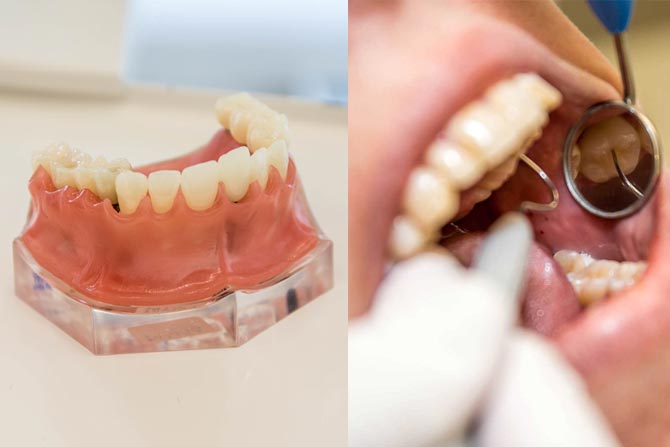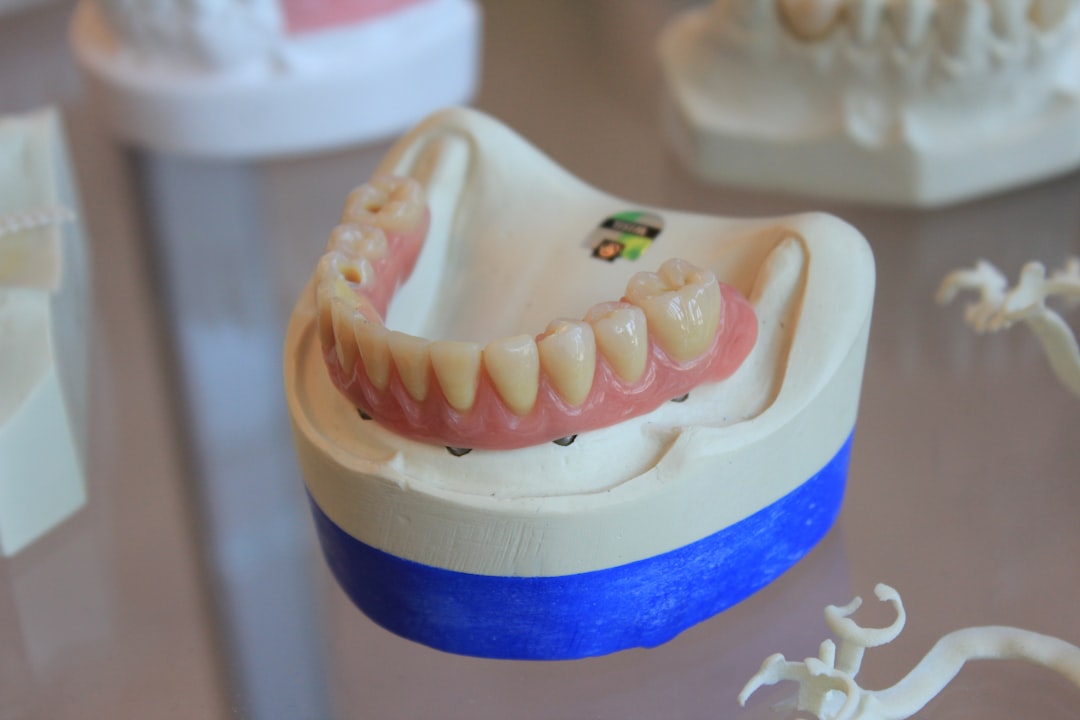Dentures have long been a solution for tooth loss. Yet, they often come with discomfort and inconvenience.
Denture stabilisation offers a way to overcome these challenges. It provides a secure fit, enhancing comfort and functionality.
This article explores the benefits of denture stabilisation. It delves into how this method can improve the quality of life for denture wearers.
We’ll discuss the different methods of stabilisation. We’ll also compare it to traditional denture adhesives.
From improved oral health to increased self-esteem, the advantages are numerous.
Whether you’re a denture wearer, considering dentures, or a caregiver, this guide is for you.

Understanding Denture Stabilisation
Denture stabilisation is a modern approach to securing dentures. It aims to provide a comfortable and secure fit for denture wearers.
This method uses dental implants or adhesives to stabilise the dentures. It ensures they stay in place, reducing the risk of slipping or shifting.
Stabilised dentures differ from traditional ones in several ways. The most notable difference is the level of comfort and functionality they offer.
With stabilised dentures, wearers can eat, speak, and smile with confidence. They no longer have to worry about their dentures moving unexpectedly.
Here are some key aspects of denture stabilisation:
- It uses dental implants or adhesives for stability.
- It provides a secure and comfortable fit.
- It improves functionality, allowing wearers to eat and speak with ease.
- It reduces the risk of denture slipping or shifting.
- It enhances the quality of life for denture wearers.
The Discomfort of Ill-Fitting Dentures
Ill-fitting dentures can cause a great deal of discomfort. They can lead to sores, infections, and difficulty in eating and speaking.
When dentures don’t fit properly, they can move around in the mouth. This movement can cause friction against the gums, leading to painful sores.
Infections are another common issue with ill-fitting dentures. Food particles can get trapped under the dentures, leading to bacterial growth and infections.
Moreover, ill-fitting dentures can make it hard to eat certain foods or speak clearly. This can impact a person’s quality of life and self-confidence.
Methods of Denture Stabilisation
Denture stabilisation is a solution to the discomfort caused by ill-fitting dentures. It involves securing the dentures in place to prevent movement and improve function.
There are several methods used for denture stabilisation. These include dental implants, overdentures, and denture adhesives.
Each method has its own advantages and considerations. The choice of method depends on the individual’s oral health, lifestyle, and personal preferences.
Here are the common methods of denture stabilisation:
- Dental implants
- Overdentures
- Denture adhesives
Dental Implants and Overdentures
Dental implants are a popular method for denture stabilisation. They provide a secure foundation for the dentures, preventing movement and improving function.
Overdentures are another option. They are a type of denture that is secured over dental implants or natural teeth.
Both dental implants and overdentures offer a long-term solution for denture stabilisation. They can significantly improve the comfort and functionality of dentures.

Denture Adhesives: A Temporary Solution
Denture adhesives are a temporary solution for denture stabilisation. They are used to secure the dentures in place and prevent movement.
However, denture adhesives have their limitations. They need to be reapplied regularly and can be messy to use.
Despite these drawbacks, denture adhesives can provide a quick and affordable solution for denture stabilisation. They can be a good option for individuals who are not candidates for dental implants or overdentures.
Top Benefits of Denture Stabilisation
Denture stabilisation offers numerous benefits. It can significantly improve the comfort and functionality of dentures.
One of the main benefits is the improved chewing efficiency. This can enhance the individual’s dietary options and overall nutrition.
Another benefit is the enhanced speech clarity. Stabilised dentures can improve confidence in social situations and prevent embarrassing slips.
Denture stabilisation also benefits oral health. It can reduce bone loss and prevent the shifting and slipping of dentures.
Here are the top benefits of denture stabilisation:
- Improved chewing efficiency
- Enhanced speech clarity
- Reduced bone loss
- Prevention of denture shifting and slipping
Improved Chewing and Nutrition
One of the main benefits of denture stabilisation is improved chewing efficiency. This can significantly enhance the individual’s dietary options.
With stabilised dentures, individuals can enjoy a wider range of foods. This can improve their overall nutrition and health.
Moreover, improved chewing can enhance the sensory experience of eating. This can contribute to a better quality of life.
Enhanced Speech and Confidence
Stabilised dentures can also enhance speech clarity. This can improve confidence in social situations and prevent embarrassing slips.
With stabilised dentures, individuals can speak more clearly and confidently. This can enhance their social life and interpersonal interactions.
Moreover, the psychological benefits of having a stable and secure denture can increase self-esteem. This can have a positive impact on the individual’s overall well-being.
Oral Health and Bone Preservation
Denture stabilisation also benefits oral health. It can reduce bone loss and prevent the shifting and slipping of dentures.
With stabilised dentures, individuals can maintain a healthy jawbone and prevent resorption. This can contribute to a better oral health and overall well-being.
Moreover, stabilised dentures can support facial muscles and prevent sagging. This can enhance the individual’s facial structure and aesthetics.
Comparing Stabilisation to Adhesives
Denture stabilisation and denture adhesives are two common methods used to secure dentures. However, they offer different levels of comfort and convenience.
Denture adhesives are a temporary solution. They can help to secure dentures, but they need to be reapplied regularly. This can be inconvenient and time-consuming.
On the other hand, denture stabilisation provides a more permanent solution. Once the dentures are stabilised, there is no need for regular reapplication of adhesives. This can save time and enhance comfort.
Moreover, stabilised dentures can provide a more natural feel and function compared to adhesive-secured dentures. This can significantly improve the individual’s quality of life.
Maintenance and Care for Stabilised Dentures
Stabilised dentures require regular care and maintenance to ensure their longevity and hygiene. This involves daily cleaning and regular dental check-ups.
Daily cleaning of stabilised dentures is similar to the care for natural teeth. It involves brushing and flossing to remove food particles and prevent plaque build-up.
Regular dental check-ups are also crucial. They allow the dentist to monitor the condition of the dentures and the oral health of the wearer.
Here are some tips for maintaining stabilised dentures:
- Brush and floss daily to keep the dentures clean.
- Use a soft-bristle toothbrush to avoid damaging the dentures.
- Avoid using abrasive cleaning materials that can scratch the dentures.
- Visit the dentist regularly for check-ups and professional cleaning.
- Handle the dentures with care to avoid damaging them.
Cost and Insurance Considerations
The cost of denture stabilisation can vary based on several factors. These include the type of stabilisation method used, the number of implants needed, and the geographical location of the dental clinic.
While denture stabilisation may seem costly upfront, it’s important to consider the long-term benefits. Stabilised dentures often require fewer replacements and adjustments, leading to savings over time.
Insurance coverage for denture stabilisation also varies. Some insurance plans may cover a portion of the cost. It’s advisable to check with your insurance provider to understand what is covered and what out-of-pocket expenses you may incur.
Real Stories: The Life-Changing Impact
Many individuals who have opted for denture stabilisation report a significant improvement in their quality of life. They often share stories of restored confidence, the ability to enjoy a wider variety of foods, and enhanced comfort in social situations.
One such story is of a woman who, after years of struggling with ill-fitting dentures, decided to try denture stabilisation. She now speaks of the freedom and comfort she experiences daily, and how this decision has positively impacted her overall well-being.
These personal testimonials highlight the life-changing benefits of denture stabilisation, making it a worthwhile consideration for those struggling with traditional dentures.
Conclusion: Embracing Denture Stabilisation
Denture stabilisation offers a host of benefits that can significantly improve the comfort and quality of life for denture wearers. From enhanced oral health to improved social confidence, the advantages are clear and compelling.
While the initial investment may be higher than traditional dentures, the long-term benefits and savings make it a worthwhile consideration. It’s about investing in your comfort, health, and happiness.
In conclusion, if you’re struggling with ill-fitting dentures, consider the benefits of denture stabilisation. It could be the solution you’ve been searching for to restore your smile and confidence.
